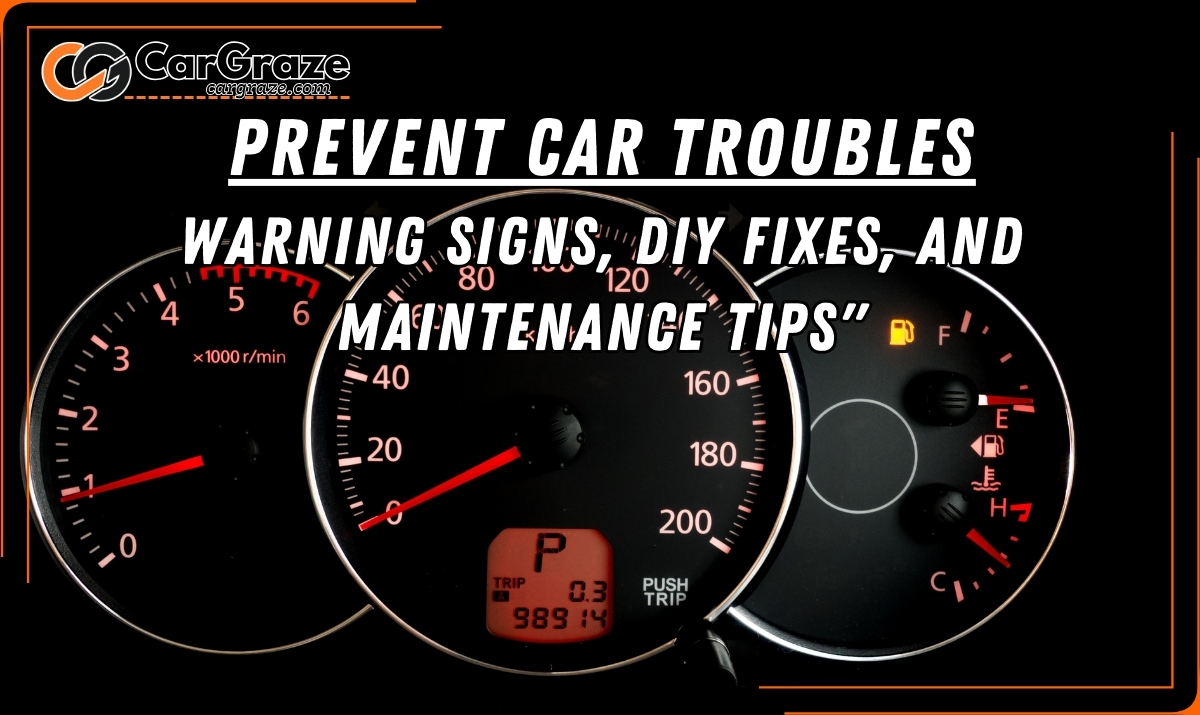
Having Trouble Starting Your Car? Let’s Troubleshoot Some Common Issues
There’s nothing quite as frustrating as getting into your car, ready to head out, only to find it won’t start. Whether you’re late for work or on your way to an important event, car troubles always seem to happen at the worst times. But don’t worry! Let’s dive into some common car issues, how to troubleshoot them, and ways to keep your vehicle running smoothly.
Understanding Car Trouble Warning Signs
Your car often tells you something is wrong before it completely gives up. Pay attention to these warning signs:
- Dashboard warning lights: The check engine light, battery light, or oil pressure light could indicate underlying issues.
- Odd noises: Clicking, grinding, or squealing sounds can signal problems with the engine, brakes, or transmission.
- Unusual smells: Burning rubber, gasoline, or sweet smells might indicate a leak or overheating issue.
Learning to recognize these signs early can save you time, money, and stress.
Common Car Troubles and Their Causes
Here are some of the most frequent car problems and their likely causes:
- Dead battery: Often due to leaving lights on, a faulty alternator, or an old battery.
- Engine misfires: This could stem from worn-out spark plugs or a clogged air filter.
- Overheating engine: Low coolant levels, a broken radiator, or a faulty thermostat can all lead to overheating.
- Flat tyres: Caused by sharp objects, poor road conditions, or under-inflation.
Knowing what might be wrong can help you decide on the best course of action.
Diagnosing Car Troubles at Home
Before rushing to the mechanic, try these simple steps to diagnose the issue:
- Check the battery: Use a multimeter to test the voltage; anything below 12.4 volts indicates a weak or dead battery.
- Inspect the tyres: Look for visible damage and ensure the air pressure matches the recommended levels.
- Listen to the sounds: A clicking sound when starting could point to a bad starter while grinding might indicate a problem with the alternator.
- Examine fluid levels: Low oil, coolant, or brake fluid can cause major issues.
These quick checks can help you determine whether it’s a minor issue or something requiring professional help.
Tips for Preventing Common Car Troubles
Prevention is always better than cure. Keep your car trouble-free with these tips:
- Regular maintenance: Stick to the recommended schedule for oil changes, filter replacements, and tyre rotations.
- Battery care: Clean the terminals and check the battery regularly.
- Mindful driving: Avoid aggressive driving to reduce wear and tear.
- Seasonal checks: Prepare your car for extreme weather by checking antifreeze levels in winter and tyre pressure in summer.
A little care can go a long way in keeping your car reliable.
How to Choose a Reliable Car Mechanic
When your car trouble goes beyond DIY fixes, finding the right mechanic is crucial. Here’s what to look for:
- Certifications: Look for certified mechanics if possible.
- Reviews: Check online reviews and ask for recommendations from friends and family.
- Clear communication: A good mechanic will explain the issues and provide a detailed estimate.
- Warranty: Ensure they offer warranties on parts and labour.
A trustworthy mechanic can save you from unnecessary repairs and expenses.
Common Car Trouble Myths Debunked
Let’s clear up some misconceptions about car problems:
- Myth 1: Premium fuel improves performance in all cars.
- Truth: Only cars designed for premium fuel benefit from it.
- Myth 2: Warm up your car for 10 minutes in winter.
- Truth: Modern engines only need about 30 seconds to warm up.
- Myth 3: A low tyre will fix itself after driving.
- Truth: Driving on a flat tyre can cause further damage.
Understanding the facts helps you take better care of your vehicle.
DIY Solutions for Common Car Troubles
Feeling handy? Here are some fixes you can try:
- Replace a dead battery: With a wrench and a bit of patience, you can swap out your old battery.
- Fix a flat tyre: Use a tyre repair kit for small punctures or put on a spare tyre.
- Top off fluids: Refill low oil, coolant, or windshield washer fluids.
- Change air filters:** A clogged air filter can be replaced in just a few minutes.
These simple solutions can get you back on the road quickly.
When to Seek Professional Help for Car Troubles
Some problems require expert attention. Seek professional help when:
- Warning lights stay on even after troubleshooting.
- The car makes loud, persistent noises.
- You experience frequent breakdowns.
- You’re unsure about the cause of the issue.
Never ignore a problem that could compromise your safety.
Conclusion: Keeping Your Car Trouble-Free
Owning a car comes with its share of challenges, but regular maintenance and a little know-how can make a world of difference. By recognizing warning signs, addressing minor issues promptly, and knowing when to call a professional, you can enjoy a smoother driving experience and fewer headaches.
So next time your car gives you trouble, don’t panic. With the right approach, you’ll be back on the road in no time!



Comments